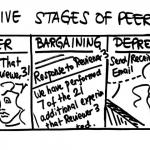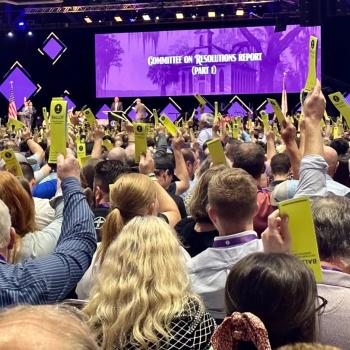Seeing the Inside Higher Ed piece about the Twitter hashtag #womenalsoknowhistory, which then led me to the Chronicle of Higher Education article about the website by the same name, I found myself thinking about my own field, which includes many historians as well as scholars who use historical tools as part of a more diverse palette of methods. I think that some additional hashtags such as #womenalsoknowreligion and #womenalsoknowbible are called for. There is already a website highlighting the work of women biblical scholars, called – you guessed it – Women Biblical Scholars. And no one working in any of the fields that I work in should have difficulty thinking of female scholars who work on the Bible, or Gnosticism, or anything else. In the field of Gnostic studies, the key figures are women, and in the particular tradition that I work on – Mandaeism – the only scholar whose work has focused primarily on that tradition is Jorunn Buckley. The field was also pioneered by a woman, Ethel Drower. But more broadly the names of Elaine Pagels, April De Conick, Karen King, and Nicola Denzey Lewis do not merely come to mind, but are probably among the names that come to mind first when one thinks about scholarship in the field. In biblical studies, classics, late antique Christianity, Jewish studies, and any other area that intersects with religion, so many leading scholars spring immediately to mind who are women. And so how is it possible that panels and whole conferences are organized and yet female scholars are not invited or not prominent on the program? The short answer, of course, is that there is a historic underrepresentation of women in academia, and a natural propensity of human beings to gravitate towards and think first of people who are in the same category as themselves. But that is precisely why it is so crucially important to work in a deliberate manner to keep these historic biases from being perpetuated.
My main reason for writing this post is that it bothers me that it so often ends up being the underrepresented, the marginalized, and the discriminated against who have to call attention to their own situation. For that reason, I don’t want to wait until female colleagues in my field create these hashtags, #womenalsoknowreligion and #womenalsoknowbible – men should be emphasizing this too!
See also the post by Carmen Joy Imes about the effort of IVP to promote female authors using the hashtag #readwomen.
P.S. I resisted the temptation to try to start a hashtag #womenalsogno or something like that in relation to Gnosticism – but apparently couldn’t resist telling you about where my punny proclivity led my thoughts to go…













